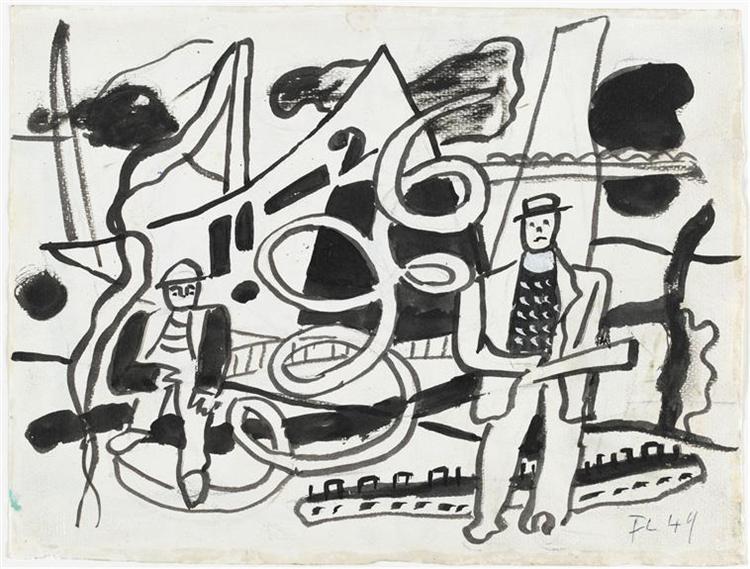Description
The painting "Truville - 1949" by Fernand Léger is a work that encapsulates the essence of postcubism and the author's modernist vision. Léger, an emblematic artist of the twentieth century, is known for his ability to merge the shape and color in a way that not only captures reality, but also reinterprets it through a lens of dynamism and modernity. In this work, you can see the influence of Trouville's coastal landscape, a recurring component in the artist's work that evokes not only a place, but a vigorous aesthetic experience.
The composition of "Truville - 1949" stands out for its defined structure and its masterful use of color. The tones are vibrant and contrasting, a testimony of the distinctive style of Léger that tends to celebrate not only the form, but also their relationship with the environment. Here, the sea of the sea is in dialogue with warm colors that adorn the architecture and the figures that arise in the scene. Although the characters are not the main focus of the work, silhouettes can be glimpsed that, when stylized, converge in a two -dimensional universe, characteristic of the artist. These figures, more than literal representations of people, seem to be allegories of modern life, revealing the interaction of the human being with its environment.
The treatment of space is equally interesting; Léger uses a planimetry that plays with the plans to give depth to two -dimensional scenes. In "Trouville", the disposition of the elements guides the viewer's gaze in a fluid way, allowing each component - the sky, the water, the buildings, and the figures - are based on an integrative visual experience. This approach can be linked to the contemporary works of the artist, where reflection on modernity and urban life focuses on the visual show and the perception of movement.
One of the most fascinating aspects of this work is the confluence of aesthetics and the message. For Léger, art was not only an aesthetic means of expression; It was also a vehicle to explore modernity. "Truville - 1949" does not escape this premise, projecting the vivacity and dynamism of an era in which the social, technological and cultural change was palpant. Through this work, the viewer can feel the energy of modern life on the beach, a space where human interactions are intertwined with the beauty of the landscape.
The technique used in "Trouville - 1949" reflects Léger's evolution towards a synthesis of the abstract and figurative. The use of flat colors and defined contours, together with the simplification of the forms, highlights its search for a new aesthetic that resonates with the vivacity of the contemporary world. This work can be appreciated not only as a landscape, but as a declaration of aesthetic intentions that resonate in the viewer, inviting it to reflect on its own environment and the complexities of modernity.
In conclusion, "Truville - 1949" by Fernand Léger is more than a representation of a place; It is an exploration of the relationship between the human being and its context. The compositional elements, the vibrant palette and the spatial proposal work together to create a visual experience that is both dynamic and reflective. The work embodies the spirit of an artist who, through his vision, contributed to expand the limits of modern art, becoming a timeless reference in the history of art.
KUADROS ©, a famous paint on your wall.
Reproductions of paintings handmade oil, with the quality of professional artists and the distinctive seal of KUADROS ©.
Art reproduction service with satisfaction guarantee. If you are not completely satisfied with the replica of your painting, we refund your money 100%.

